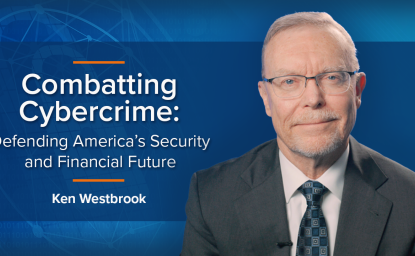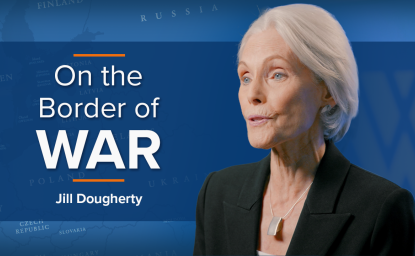Issues for the Candidates
The 2004 election takes place amidst unprecedented international challenges. Former Congressman Lee Hamilton outlines key foreign policy issues that the candidates - and voters - should debate in the next seven months.
The 2004 election takes place amidst unprecedented international challenges. Former Congressman Lee Hamilton outlines key foreign policy issues that the candidates - and voters - should debate in the next seven months.
As in any election year, Americans can expect much talk of jobs, health care, taxes and social security. But if early campaigning is any indication, foreign policy will play an unusually central role in each candidate's case to the electorate.
A robust foreign policy debate would be good for American democracy. The United States has momentous choices to make in the next few years – decisions that will directly affect the lives of all Americans and billions of people around the world. Those choices should begin with informed American voters going to the ballot box, and those voters deserve better than scurrilous name-calling, partisan finger-pointing and glittering generalities. The issues at stake are far too important.
The obvious starting point is the war on terror. Americans want to know that candidates have a plan to keep them safe. Surely, both John Kerry and George Bush will pledge to use intelligence, law-enforcement, diplomacy, financial action, and – when necessary – military force to combat terrorists. But terrorism should not be the sole prism through which candidates and voters approach foreign policy, for it is part of a broader matrix of threats that demands urgent attention.
First, there is the growing danger from nuclear weapons. We must get past the notion that the threat of nuclear annihilation left with the Soviet Union. If anything, suicidal terrorists, belligerent regimes and disbursed technology make the threat more plausible. Voters should expect detailed plans for securing nuclear materials, enforcing nuclear safeguards, and rolling back proliferation.
Dealing with North Korea and Iran should also be at the top of the list, as we do not have an effective policy for nuclear threshold states. Politicians avoid talking about these countries because there are no easy solutions. But both have or are close to having a nuclear weapon, are hostile to the U.S., and destabilize vital regions where there are large deployments of American troops. Iran has ties to terrorism, and North Korea is known to sell weapons for cash. Tough denunciations and vague policy statements should not reassure the American public; we need clear and comprehensive plans for dealing with these threats.
Any debate must include the broader Middle East. Both candidates have three challenges to deal with: building a reasonably unified, stable and democratic Iraq and Afghanistan; advancing peace in the Israeli-Palestinian conflict; and encouraging political and economic reform in the region. The crux of these issues is that none can be advanced without attention to all of them, for they are fundamentally linked. It will take U.S. leadership and international support to lift this troubled region out of a violent morass that takes American lives and threatens American interests.
We can expect both candidates to exhort the Middle East and wider world to embrace democracy. Voters should meet these exhortations with questions about two U.S. allies: Saudi Arabia and Pakistan. Both are vital to the war on terror, but both have taken halting steps toward democracy, and sporadic action on terror and proliferation. Americans must think about the line between alliances that are tolerable because they are in the national interest, and alliances that are intolerable because they go against our values. Setting this line will help determine how we prosecute the war on terror, and engage in the historic mission of American foreign policy: promoting freedom and democracy.
Finally, the campaign provides an opportunity to step back and contemplate swelling turmoil in the world. Poverty, inequality, disease, hunger, environmental degradation, political repression, conflict and violence are spiraling out of control in parts of the world, and technology allows people to understand just how bad they have it. Terrorism is an ugly and intolerable symptom of this broader problem. Dealing with terrorism and this wider turmoil is a project for a generation, and success depends upon rethinking how we organize our government to conduct foreign policy, cooperate with allies and international institutions, and make decisions globally.
It is time for the candidates and the American people to discuss these issues in a sober and civil manner. The challenges of the 2004 international environment rank with the immediate aftermath of World War II and the darkest days of the Cold War. If America is to respond as well to its current challenge as it did those, the 2004 election must reflect the better angels of our nature and our politics.


